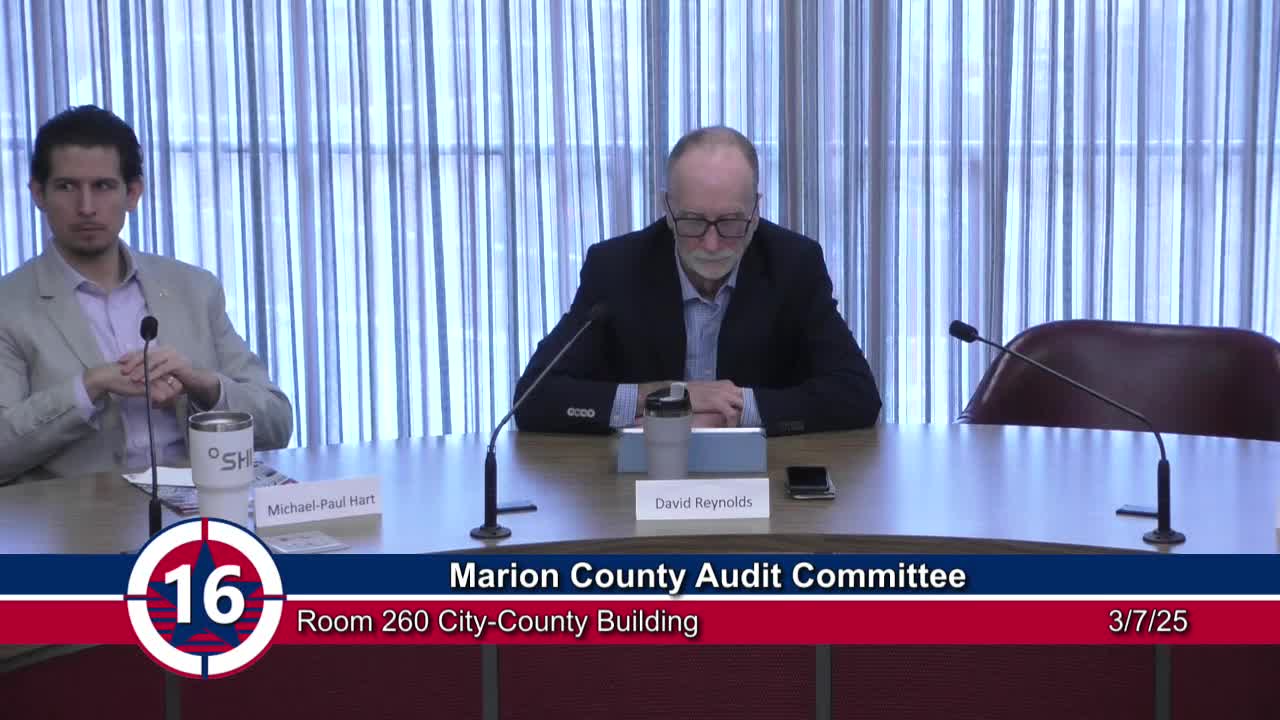External auditors outline 2024 audit plan, single-audit coverage and reporting changes
Get AI-powered insights, summaries, and transcripts
Subscribe
Summary
City/county external auditors presented their 2024 audit approach on March 7, highlighting risks around revenue recognition and accrual conversions, federal single-audit programs including ARPA/CSLFRF and COVID awards, and a reporting-entity change that removed the Indianapolis Housing Authority from the city's financial statements.
External auditors briefing the Indianapolis-Marion County Audit Committee on March 7 summarized the scope, timing and risk focus for the 2024 financial and federal-award audits and described recent reporting changes affecting the city’s financial statements.
Rick Clayton, partner with the external engagement team, told the committee the auditors conduct the financial-statement audits “in accordance with generally accepted auditing standards” and the federal-award work under “uniform guidance.” He said the audit provides “reasonable rather than absolute assurance” and that auditors “don't audit every single transaction, we don't audit every single penny.”
Key audit risk areas called out by the auditors include improper revenue recognition and override of controls (inherent risks for most governments), the year-end conversion from cash/budget to full accrual accounting, accounts-payable cutoff, capital-asset accounting and long-term debt. Clayton said new GASB standards would be evaluated during the engagement and described potential presentation changes on statement columns and major-fund reporting that could appear in the ACFR.
Single-audit coverage and ARPA: The auditors said federal requirements prescribe which programs must be audited; the team listed four major programs for coverage in 2024. Several of the programs are COVID-related, and the auditors identified the Coronavirus State and Local Fiscal Recovery Funds (CSLFRF, commonly discussed as ARPA funds) as among the items requiring attention. The auditors explained ARPA compliance includes monitoring of subrecipients and a separate Treasury-defined category—beneficiaries—with different ongoing compliance obligations.
On subrecipient monitoring, one council member urged greater outreach so community nonprofits know federal compliance expectations early; the auditors and committee discussed the difference between subrecipients (which carry compliance obligations) and beneficiaries (which may not carry ongoing federal compliance requirements once funds leave the city).
Indianapolis Housing Authority: The auditors addressed prior audit delays tied to the Indianapolis Housing Authority (IHA). Rick Clayton said, “IHA was actually removed from the city's financial statements last year, because in essence, it's really functioning as a HUD organization more than it is a city organization,” and that the removal followed a cooperative agreement with HUD. The auditors said that reporting-entity change should reduce the risk that IHA would delay the city’s ability to issue timely ACFR and single-audit filings.
Timing and deliverables: Auditors said they will begin fieldwork in the weeks following the meeting, expect to return with final results in July, and target a June 30 deadline to remain competitive for the Government Finance Officers Association certificate of achievement and to meet rating-agency expectations.
The auditors told the committee they will share drafts with the State Board of Accounts in June and will notify the committee earlier if they encounter issues or findings they believe warrant committee attention.
No formal committee action was taken on audit scope at the meeting; the committee approved the audit report later in the session.
